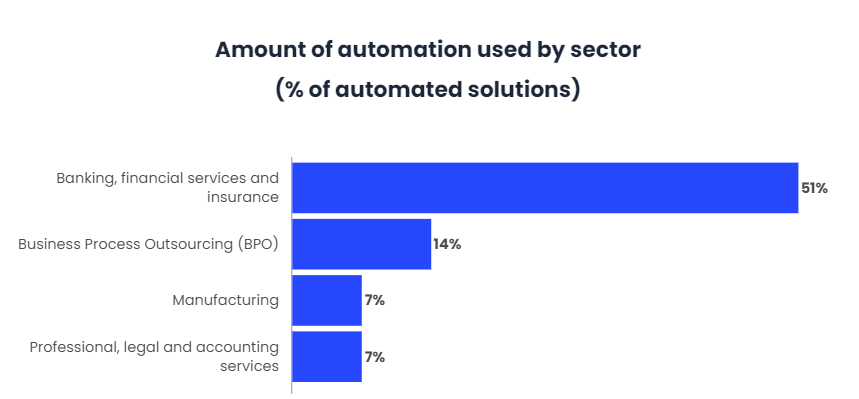Amazon FinSpace: The New Cloud Data Management

Today, data is the lifeblood of financial services companies, including banks, insurers, hedge funds, etc. Generally, this data presents a challenge as it is not housed in the same silos as enterprise data, whether structured or unstructured. Thus, a company’s ability to aggregate and catalogue this data can generate greater value for businesses. For example, identifying transaction patterns, profiling or predicting user purchasing behaviour from historical data.
At this point, AWS comes into play with its new Amazon FinSpace product. This service is responsible for reducing the time it takes companies in the financial services industry (FSI) to locate, manage and analyse data, reducing work from months to minutes. FinSpace works through a mechanism of tagging and cataloguing data in the appropriate silos, facilitating the search for information.
As will be described in detail below, Amazon FinSpace has an analysis engine owned by Apache Spark, capable of performing a multitude of analyses using Big Data. This engine is responsible for preparing the data for petabyte-scale analysis. In addition, FinSpace prevents data access control and keeps track of the data.
Situation of the sector
In order to understand why a tool like the one offered by AWS was urgently needed, the context of the situation in this sector needs to be better explained. FSI is capable of generating hundreds of petabytes of data every day as a result of its daily tasks.
The use of petabytes of data provides information that helps to identify new sources of revenue, reduce risks and costs, and to practice a better Customer Experience. Until now, the search for such information was time-consuming and could take months.
Thus, the time required by FSI companies to search for specific data is very high because it is siloed across departments that in turn generate more specific data. For example, this can be currencies, stocks, bonds, funds, and so on. On top of this, the data is difficult to access because it is controlled by recent privacy regulations and policies.
Then, once the analyst has legal access to the data, they must prepare the data by iteratively performing data transformations to discover new information within the data.
Traditional data analytics tools did not take advantage of the scalability of the cloud and therefore analysts could not analyse large representative datasets. As a result, the predictive capability of the financial sector was limited.
It is also worth noting the large investment by companies in cloud environments, where cloud spending continues to rise and is a trend that shows no signs of slowing down. And, this is where FinSpace comes in, following the introduction of Amazon Smart Factory for manufacturing companies and Amazon HealthLake for healthcare and biologics data management. Amazon FinSpace joins the trend that targets companies with cloud services that work with differentiated toolsets tailored to their specific target industry.

Microsoft has also launched an industrial cloud for the healthcare sector in the past year, and recently announced that it will launch industrial clouds for the financial sector and the manufacturing sector, among others.
What is Amazon FinSpace?
Amazon FinSpace is a fully managed data management and analytics service that facilitates the storage, cataloguing and preparation of financial industry data at scale. The result is a reduction in the time it takes FSI customers to find and access all types of financial sector information, reducing this time from months to minutes.
In broad terms, FinSpace minimises the drudgery of setting up and maintaining a data management system within the financial sector. The service has the ability to collect data in a secure data management application and, in addition, tag and catalogue it by relevant business concepts, such as risk classification, geographic region, asset class and so on. The result is a simplified and common way of working across the organisation.
In addition, FinSpace provides a library of more than 100 functions, such as Bollinger bands and time bars, which are used to prepare the data for further analysis. Also, analysts can integrate functions from their own libraries and, most importantly, FinSpace supports any data privacy policy requirements that each company may have by enforcing data access control and maintaining audit trails.
Characteristics of the service
Thus, this service provides companies with a simple web service for accessing information and the ability to run analyses of large volumes of data independently of the area of work.
As already mentioned, it solves the challenges of FSI organisations in a way that simplifies data management, greatly reducing time. In the area of data search, users navigate through a visual catalogue by searching for key and specific terms.
In addition, the tool allows data to be organised in a simple and customised way thanks to integrated classification schemes for common data sources such as transactions or economic data, among others.
In parallel, Amazon FinSpace records updates to the dataset on a daily basis, and processes this information to create point-in-time views. The result is the validation of models and sample data used for historical decision-making. For these functions, the tool has integrated Jupyter notebooks. Thus, all staff can access the data stored in the tool, use the different functions used by the tool and build their own functions for data analysis.
In addition, this cloud-based service works with Apache Spark, which facilitates vertical and horizontal scaling to save costs. Finally, FinSpace allows companies to define user access policy, being able to record who accesses the data and what actions they take with it.
For now, Amazon FinSpace does not generate upfront costs or usage commitments, it is only charged on a pay-as-you-go basis. This system calculates the cost based on the data stored, the users enabled and the computing resources consumed to process the data.
Currently, the service is only available in the Eastern US (N. Virginia and Ohio), Western USA (Oregon), Canada (Central) and Europe (Ireland). (Oregon), Canada (Central) and Europe (Ireland). Other regions will be available in the near future.
Conclusions
Companies such as Amazon or Microsoft provide various cloud-based services and have recently decided to provide data management and analysis services by sector. They have generally started with sectors such as manufacturing or healthcare, but now they have made the leap to the financial sector.
Microsoft has announced its plans for a financial industry cloud that will be launched soon, while Amazon has already launched its FinSpace product, claiming to provide comprehensive services with the highest standards of security and compliance that will be established by each organisation.
Thus, this AWS service has revolutionised the sector. Among its features are the ability to radically reduce working time and the automation of some of its tasks. The result is a reduction in costs and risk, as well as the discovery of new areas of work and the ability to create a better Customer Experience.


